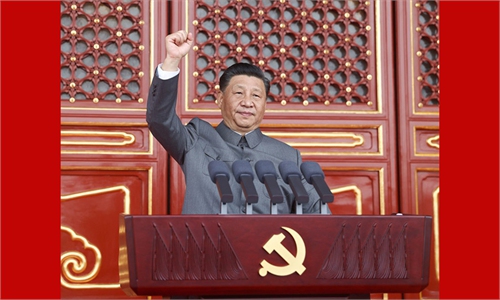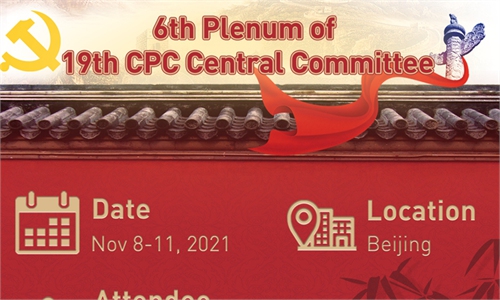CPC’s spiritual legacy has been carried forward through a journey of 100 years: The New Democratic Revolution period
Editor's Note:
Through its century-long history, the Communist Party of China (CPC) has nurtured a series of spirits, which reflect the theme and essence of the centennial history of the Party and provide the strong spiritual motivation to the great rejuvenation of China.
The spirits of the communists in China are a gigantic system and entirety with the same roots and origins. These great spirits were born and developed during the CPC's journey in revolution, construction, and reform and opening-up through historic events, locations and figures.
The spirits are also a reflection of the long-standing and well-established spirits of the people of China - creativity, hardworking, solidarity and having dreams.
The sixth plenary session of the 19th Central Committee of the CPC kicked off on Monday, which is crucial as it's the Party's first major political event after celebrating its 100th founding anniversary.
For the upcoming three days, the Global Times will illustrate the precious spirits of the CPC that have been formed and inspired Chinese people in the Party's centennial history.
This issue will explain the spirits that had developed from the founding of the CPC in 1921 to 1949 before the new China was established. This was a tough period, during which the Party led the people to take up the New Democratic Revolution. Countless communists devoted themselves to the revolutions, and left a legacy of epic heroic spirits with their lives and blood.

Founding Spirit of the CPC
The founding of the Communist Party of China in 1921 was a milestone in history. A hundred years ago, the pioneers of communism in China established the Communist Party of China (CPC) and developed the great founding spirit of the Party, which is based on the following principles: upholding truth and ideals, staying true to our original aspiration and founding mission, fighting bravely without fear of sacrifice, and remaining loyal to the Party and faithful to the people. This spirit is the Party's source of strength. Over the past hundred years, the CPC has carried forward this great founding spirit and has developed a long line of inspiring principles for Chinese communists.
New Democratic Revolution
Jinggangshan Spirit
Jinggangshan is known as the cradle of the Chinese revolution. The Jinggangshan Spirit is defined as "overcoming difficulties with hard work and relying on the masses for victory" and was conceived through the arduous struggle. It is the source of the Chinese communists' revolutionary spirit.

The spirit of the Soviet areas
The forerunner of the People's Republic of China, the Provisional Central Government of the Chinese Soviet Republic, was founded in Ruijin, East China's Jiangxi Province in 1931. This spirit nurtured in the revolutionary base in the Soviet areas features a firm conviction, a realistic and pragmatic approach, wholehearted service to the people, integrity and diligence, pursuit of excellence, and selfless devotion.
Long March Spirit
From October 1934 to October 1936, the CPC followed its own strategy by leading the main forces of the Chinese Workers' and Peasants' Red Army on a trek of 25,000 li (12,500 km) from its bases in South China to the Party's enclave in northern Shaanxi Province. Known as the "Long March," this epic effort created a legacy of revolutionary idealism and started a new great march toward national independence and people's liberation.
This is a spirit of strong beliefs, of fearless resolution to surmount difficulties at any cost, of firm discipline, and of Party unity.
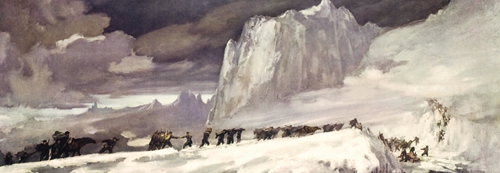
The Zunyi Meeting is known as an important wartime gathering in the history of the CPC. The meeting established Mao Zedong's leadership in the Red Army and the CPC Central Committee, and marked the formation of the first-generation collective leadership of the CPC represented by Mao Zedong. It was a historic meeting and a turning point in CPC history. The success of the Zunyi Meeting relied on firm conviction, a realistic approach, pursuit of independence, the courage to blaze new trails, democracy and unity.
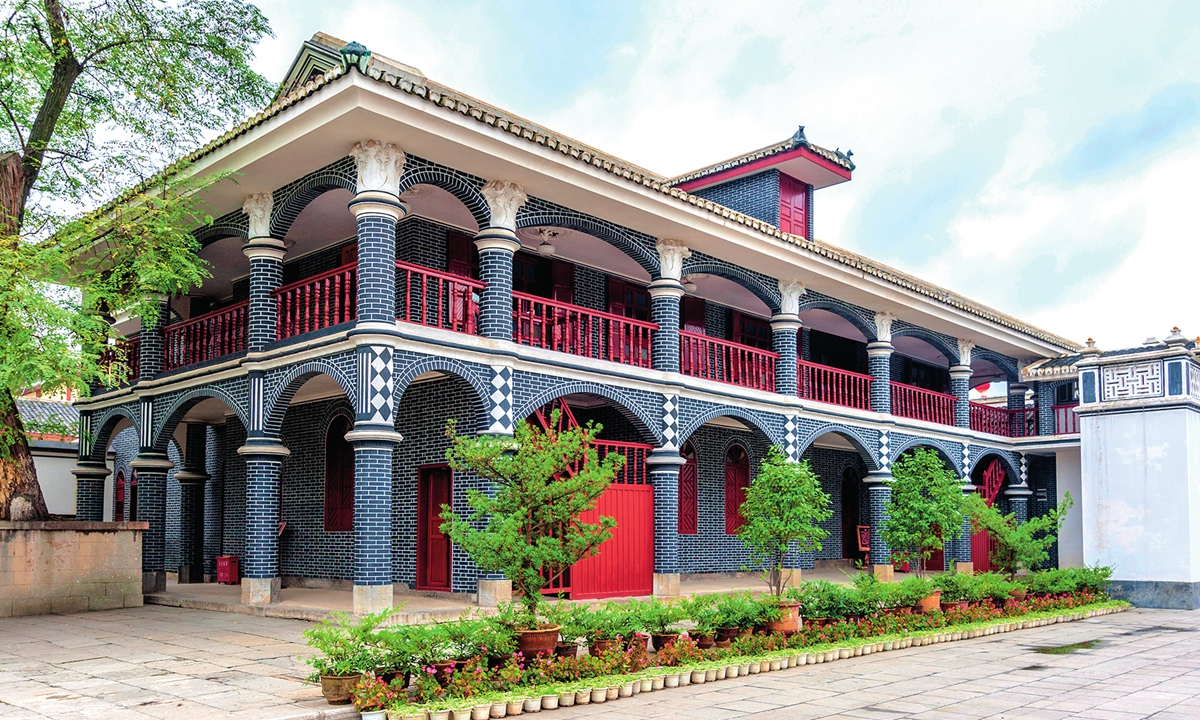
From September 1931 to August 1945, the Chinese people resisted Japanese aggression and made a great contribution to the victory of the world anti-fascist forces in World War II. During this bitter struggle they developed a spirit of resistance against aggression with patriotism at its core.
The spirit includes: patriotism that inspires the individual to work for the wellbeing of the country; dauntless national character that prepares to sacrifice oneself for the greater good; heroic valor that nurtures a national will to confront brute force and fight to the last; great perseverance and an unfailing belief in victory; and national unity to achieve victory over foreign aggressors.
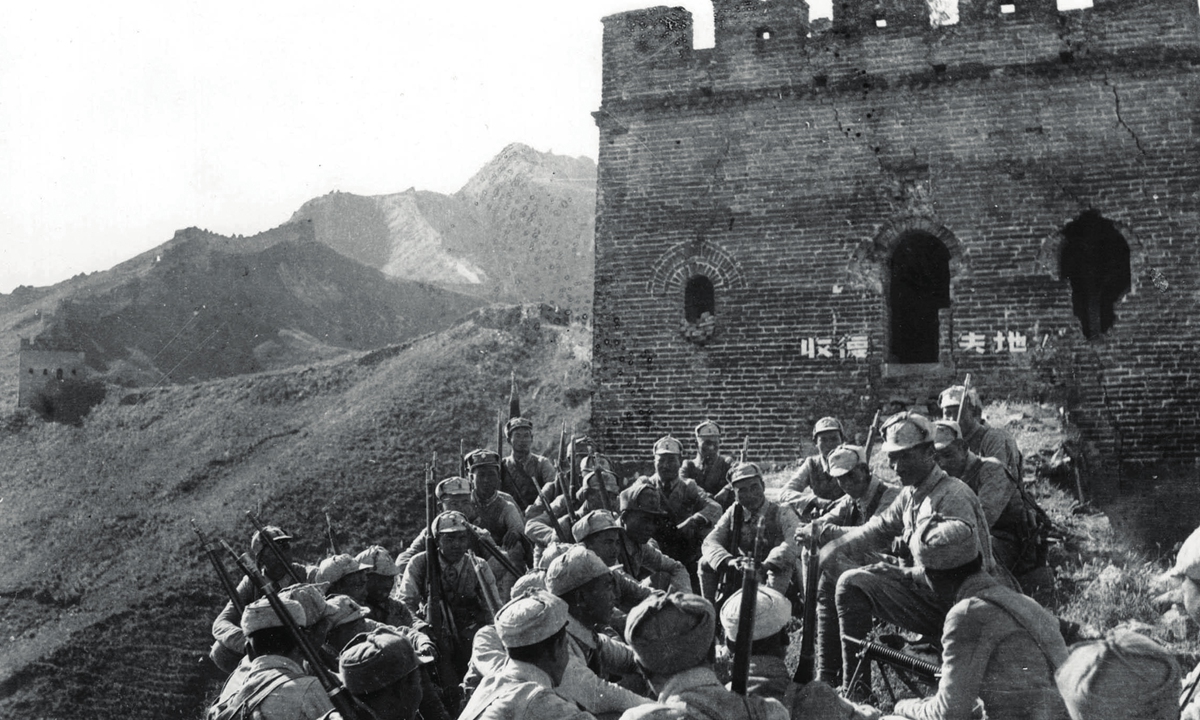
Yan'an Spirit
Yan'an was the base of the CPC during the 1930s and 40s and is a shrine of the Chinese revolution. The Yan'an Spirit, fostered by revolutionaries and communists of the older generation, has become an invaluable source of inspiration for the Party.
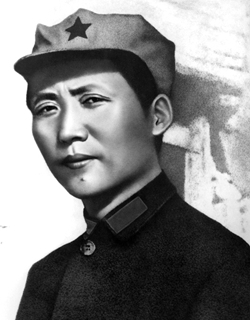
The spirit of the revolutionaries at the Red Crag, Zhaojin Spirit, Northeast Anti-Japanese United Army Spirit, Nanniwan Spirit, Taihang Spirit (Lüliang Spirit), Dabie Mountain Spirit, Yimeng Spirit, Old Revolutionary Base Areas Spirit
These names pay tribute to the remarkable revolutionary locations that gave birth to the spirit, with the guts and blood of the communists, that was present in the journey of the CPC in those harsh years. For example, the Nanniwan Spirit, fostered by the people's army under the CPC leadership, is a powerful belief in self-reliance in the face of difficulty and hardship.
Zhang Side Spirit
Zhang Side (1915-1944), a soldier in the Guards Regiment of the CPC Central Committee, sacrificed his life to save his fellow soldier in an accident. The essence of the spirit of Zhang Side is living frugally, working diligently, and being prepared to die for the people.
Xibaipo Spirit
The spirit of Xibaipo, defined by Mao Zedong in April 1949, is "to remain modest and prudent, struggle on tirelessly, and rely on the people to attain solidarity and unity."
Through its century-long history, the Communist Party of China (CPC) has nurtured a series of spirits, which reflect the theme and essence of the centennial history of the Party and provide the strong spiritual motivation to the great rejuvenation of China.
The spirits of the communists in China are a gigantic system and entirety with the same roots and origins. These great spirits were born and developed during the CPC's journey in revolution, construction, and reform and opening-up through historic events, locations and figures.
The spirits are also a reflection of the long-standing and well-established spirits of the people of China - creativity, hardworking, solidarity and having dreams.
The sixth plenary session of the 19th Central Committee of the CPC kicked off on Monday, which is crucial as it's the Party's first major political event after celebrating its 100th founding anniversary.
For the upcoming three days, the Global Times will illustrate the precious spirits of the CPC that have been formed and inspired Chinese people in the Party's centennial history.
This issue will explain the spirits that had developed from the founding of the CPC in 1921 to 1949 before the new China was established. This was a tough period, during which the Party led the people to take up the New Democratic Revolution. Countless communists devoted themselves to the revolutions, and left a legacy of epic heroic spirits with their lives and blood.

The First National Congress of the CPC was held in a red boat in Jiaxing, Zhejiang Province in July 1921. Photo: VCG
The founding of the CPCFounding Spirit of the CPC
The founding of the Communist Party of China in 1921 was a milestone in history. A hundred years ago, the pioneers of communism in China established the Communist Party of China (CPC) and developed the great founding spirit of the Party, which is based on the following principles: upholding truth and ideals, staying true to our original aspiration and founding mission, fighting bravely without fear of sacrifice, and remaining loyal to the Party and faithful to the people. This spirit is the Party's source of strength. Over the past hundred years, the CPC has carried forward this great founding spirit and has developed a long line of inspiring principles for Chinese communists.
New Democratic Revolution
Jinggangshan Spirit
Jinggangshan is known as the cradle of the Chinese revolution. The Jinggangshan Spirit is defined as "overcoming difficulties with hard work and relying on the masses for victory" and was conceived through the arduous struggle. It is the source of the Chinese communists' revolutionary spirit.

Jinggangshan Photo: VCG
The spirit of the Soviet areas
The forerunner of the People's Republic of China, the Provisional Central Government of the Chinese Soviet Republic, was founded in Ruijin, East China's Jiangxi Province in 1931. This spirit nurtured in the revolutionary base in the Soviet areas features a firm conviction, a realistic and pragmatic approach, wholehearted service to the people, integrity and diligence, pursuit of excellence, and selfless devotion.
Long March Spirit
From October 1934 to October 1936, the CPC followed its own strategy by leading the main forces of the Chinese Workers' and Peasants' Red Army on a trek of 25,000 li (12,500 km) from its bases in South China to the Party's enclave in northern Shaanxi Province. Known as the "Long March," this epic effort created a legacy of revolutionary idealism and started a new great march toward national independence and people's liberation.
This is a spirit of strong beliefs, of fearless resolution to surmount difficulties at any cost, of firm discipline, and of Party unity.

A painting illustrating troops climbing the snow mountain during the Long March. Photo: VCG
Zunyi Meeting SpiritThe Zunyi Meeting is known as an important wartime gathering in the history of the CPC. The meeting established Mao Zedong's leadership in the Red Army and the CPC Central Committee, and marked the formation of the first-generation collective leadership of the CPC represented by Mao Zedong. It was a historic meeting and a turning point in CPC history. The success of the Zunyi Meeting relied on firm conviction, a realistic approach, pursuit of independence, the courage to blaze new trails, democracy and unity.

The site of Zunyi Meeting Photo: VCG
Anti-Japanese War SpiritFrom September 1931 to August 1945, the Chinese people resisted Japanese aggression and made a great contribution to the victory of the world anti-fascist forces in World War II. During this bitter struggle they developed a spirit of resistance against aggression with patriotism at its core.
The spirit includes: patriotism that inspires the individual to work for the wellbeing of the country; dauntless national character that prepares to sacrifice oneself for the greater good; heroic valor that nurtures a national will to confront brute force and fight to the last; great perseverance and an unfailing belief in victory; and national unity to achieve victory over foreign aggressors.

After a battle in the spring of 1938, the Eighth Route Army troops hold a meeting on the Great Wall in Baoding. Photo: VCG
Yan'an Spirit
Yan'an was the base of the CPC during the 1930s and 40s and is a shrine of the Chinese revolution. The Yan'an Spirit, fostered by revolutionaries and communists of the older generation, has become an invaluable source of inspiration for the Party.

Mao Zedong in Yan'an Photo: VCG
The spirit of the revolutionaries at the Red Crag, Zhaojin Spirit, Northeast Anti-Japanese United Army Spirit, Nanniwan Spirit, Taihang Spirit (Lüliang Spirit), Dabie Mountain Spirit, Yimeng Spirit, Old Revolutionary Base Areas Spirit
These names pay tribute to the remarkable revolutionary locations that gave birth to the spirit, with the guts and blood of the communists, that was present in the journey of the CPC in those harsh years. For example, the Nanniwan Spirit, fostered by the people's army under the CPC leadership, is a powerful belief in self-reliance in the face of difficulty and hardship.
Zhang Side Spirit
Zhang Side (1915-1944), a soldier in the Guards Regiment of the CPC Central Committee, sacrificed his life to save his fellow soldier in an accident. The essence of the spirit of Zhang Side is living frugally, working diligently, and being prepared to die for the people.
Xibaipo Spirit
The spirit of Xibaipo, defined by Mao Zedong in April 1949, is "to remain modest and prudent, struggle on tirelessly, and rely on the people to attain solidarity and unity."

